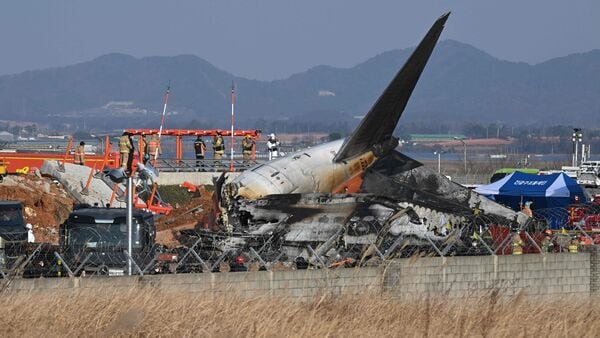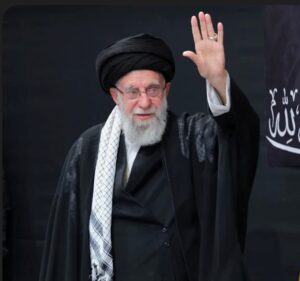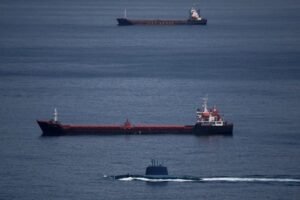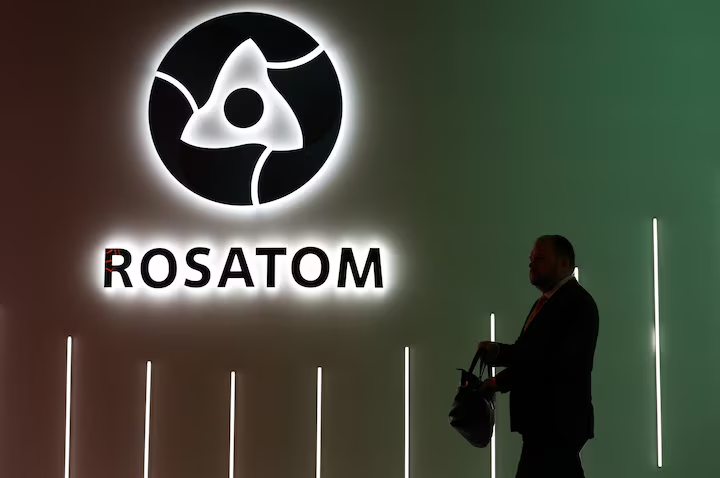
A Boeing 737-800 aircraft, operated by Jeju Air, was involved in the incident while landing at Muan Airport, arriving from Bangkok, Thailand.
One hundred and seventy-nine people have been confirmed dead in the devastating plane crash that occurred at Muan International Airport in South Korea.
Only two people – both flight crew members – have been confirmed as the survivors of the crash.
A Boeing 737-800 aircraft, operated by Jeju Air, was involved in the incident while landing at Muan Airport, arriving from Bangkok, Thailand.
There were 181 individuals on board, including six crew members. As news of the incident spread, family members of the passengers have gathered at the airport, seeking information and comfort.
According to BBC, one distraught relative, who had family members on the flight, expressed his anguish, saying, “I can’t believe the entire family has disappeared, my heart aches so much.”
The ages of the passengers range from three to 78-years-old, but most were in their 40s, 50s and 60s, South Korean Yonhap news agency reports.
The two survivors were pulled from the tail section and are receiving treatment at a nearby hospital.
Although the cause of the crash isn’t certainly known, however it is “presumed to have been a bird strike,” one of the two rescued members of crew have told local media.
“Smoke came out of one of the engines and then it exploded,” Ms Ku, a female flight attendant in her 20s, told Yonhap news agency.
Another survivor, flight attendant Mr Lee, 33, said he did not remember the circumstances of the crash.
When he was being checked over by a doctor in hospital he reportedly asked: “Why did I end up here?”
He added: “I was wearing my seatbelt before landing, and it seemed like the plane had landed, but I don’t remember anything after that.”
He suffered a fractured left shoulder and head injuries, according to the Aju Business Daily newspaper.
Among the 175 passengers aboard the flight, 173 were Korean nationals and two were Thai nationals, officials have said.
The Boeing 737-800 attempted a belly landing at about 9.03am local time after its landing gear reportedly failed to deploy.
The aircraft was seen skidding along the runway before hitting the airport’s perimeter wall, breaking into two pieces at the front and tail sections and bursting into flames.
Witnesses reported hearing loud “bang” noises before the aircraft struck the wall. Local broadcaster MBC aired footage that appears to show a bird strike incident as the plane was descending. Officials have also said weather conditions may have played a role.
The plane crash has been described as South Korea’s worst domestic civil aviation disaster and marks the first major casualty incident involving a low-cost carrier in the country’s history.
Jeju Air chief executive, Kim E-bae, has issued official apology saying: “Above all, we express our deepest condolences and apologies to the families of the passengers who lost their lives in this accident. At present, the cause of the accident is difficult to determine, and we must await the official investigation results from the relevant government agencies.
“Regardless of the cause, as CEO, I feel profound responsibility for this incident.”
A spokesperson for Boeing told the Guardian: “We are in contact with Jeju Air regarding flight 2216 and stand ready to support them. We extend our deepest condolences to the families who lost loved ones, and our thoughts remain with the passengers and crew.”






